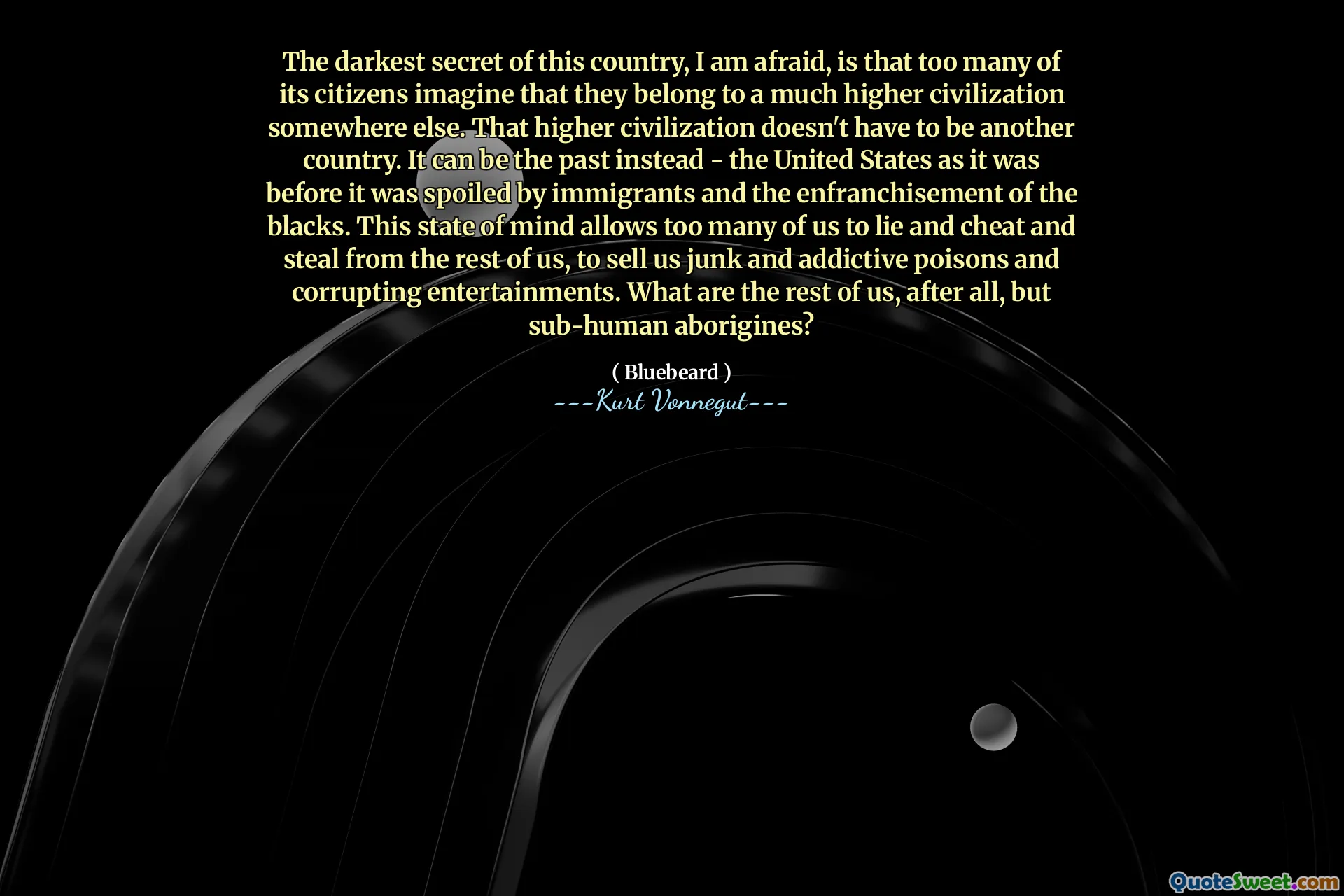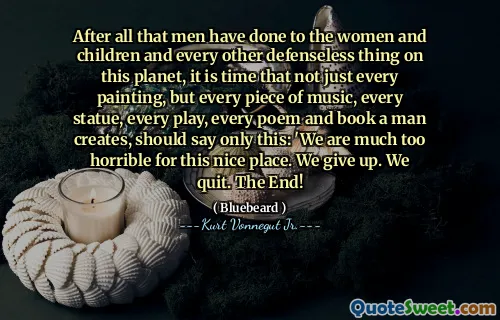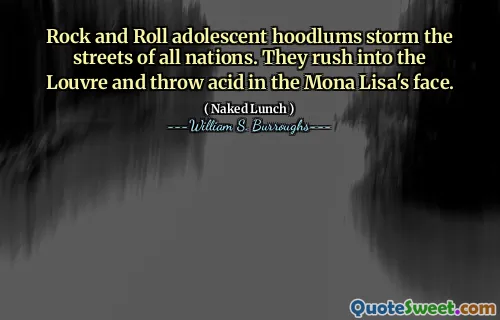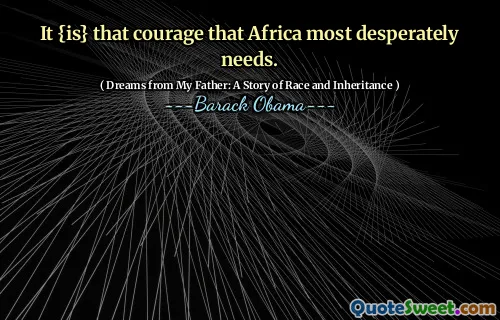
The darkest secret of this country, I am afraid, is that too many of its citizens imagine that they belong to a much higher civilization somewhere else. That higher civilization doesn't have to be another country. It can be the past instead - the United States as it was before it was spoiled by immigrants and the enfranchisement of the blacks. This state of mind allows too many of us to lie and cheat and steal from the rest of us, to sell us junk and addictive poisons and corrupting entertainments. What are the rest of us, after all, but sub-human aborigines?
This quote delves into a troubling aspect of national identity and collective self-perception. It suggests that many citizens harbor an illusion of belonging to a more noble or refined civilization, often romanticized as a utopian past rather than the present reality. The speaker critically reflects on this nostalgia, which can serve as a defense mechanism that distorts the true nature of society. Such nostalgia, in their view, may foster complacency or even justification for unethical behaviors—lying, cheating, and theft—under the guise of preserving some idealized heritage. The mention of the 'spoiled' United States prior to certain social changes points to a desire for an idealized, perhaps racially or culturally homogeneous golden age, which is problematic as it dismisses the diversity and progress we have achieved. By framing current societal issues—junk food, addictive substances, corrupt entertainment—as consequences of this misplaced nostalgia, the quote highlights how societal self-deception can perpetuate inequality and moral decay. Ultimately, the provocative question about being 'sub-human aborigines' forces us to confront uncomfortable truths about denial, complacency, and the denial of complexity within the national identity. It calls into question whether the construct of a utopian past hampers genuine progress and self-awareness in societal development. Recognizing these issues is crucial for fostering a more honest collective self-understanding and working towards a more equitable future.








